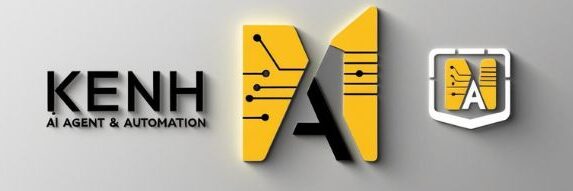AI News Today: Open Source AI Agents You Can Use Today
Introduction
Artificial Intelligence is evolving faster than ever—and one of the most promising advancements in 2025 is the rapid growth of open-source AI agents. These autonomous systems can plan, reason, and execute complex tasks without constant human input.
This article explores the current ecosystem of open-source AI agents, how they are transforming industries, real-world use cases, and the tools you can start using today to build your own autonomous AI.
What Are Open-Source AI Agents?
Definition and Purpose
Open-source AI agents are autonomous software entities designed to perform tasks by interacting with digital environments. Built with language models, APIs, and agent frameworks, these tools can reason, make decisions, and execute goals independently.
They differ from traditional AI applications in one major way: autonomy and open customization. Anyone can modify, extend, or deploy them thanks to their open-source codebases—making them a game-changer for developers, startups, and enterprises alike.
Background
The movement took off with projects like AutoGPT and AgentGPT in 2023, sparking a revolution in autonomous AI workflows. Today, platforms like OpenDevin, MetaGPT, and MCP (Multi-Agent Collaboration Protocol) are pushing boundaries further.
Key Components of an Open-Source AI Agent
Open-source AI agents are usually composed of several key components:
1. LLM Backbone (Language Model)
Most agents run on powerful language models such as GPT-4, Claude, Mistral, or LLaMA. These provide reasoning, conversation, and text generation capabilities.
2. Memory and Context Management
Memory systems help agents remember previous interactions or steps. Tools like LangChain or Semantic Kernel support dynamic memory in open agents.
3. Planner and Executor
Agents use task-planning modules to decompose goals into sub-tasks. Then, an execution engine (like ReAct or AutoGPT-style loopers) takes over.
4. Tool Use and API Integration
Agents interact with the web, databases, files, or applications via APIs. For example, an AI developer agent might use GitHub, Docker, and Terminal commands natively.
5. Multi-Agent Collaboration
Frameworks like MCP allow multiple agents to collaborate in solving a task, each handling a unique role.
Real-World Applications
AI agents aren’t just theoretical. They’re already being used in multiple sectors:
Software Development
OpenDevin is a dev agent that helps code, test, and debug entire applications using natural language prompts.
E-commerce & Marketing
Agents automate product descriptions, A/B testing, SEO, and customer emails—often integrated with platforms like Shopify or WordPress.
Knowledge Management
Tools like SuperAGI are deployed in enterprise knowledge bases to handle document searches, summarization, and insight extraction.
Automation and Task Delegation
Companies are building AI “virtual employees” that perform CRM updates, data entry, and lead nurturing automatically.
Case Study: AI Agent for Customer Service
Company: BrightTech Retail (Fictional)
Problem: 24/7 customer inquiries were overwhelming the human support team.
Solution: BrightTech deployed a customized open-source AI agent using LangChain, GPT-4 API, and integrations with their Zendesk system.
Features Included:
Memory-based chat handling
Order tracking and FAQ response
Escalation to human agents when needed
Results:
70% reduction in Tier 1 support tickets
Customer satisfaction (CSAT) increased by 24%
Average response time dropped from 6 mins to 12 seconds
Cost: $250/month (vs. $4,000+ in previous staffing)
Challenges and Considerations
Despite their power, open-source AI agents come with important caveats:
1. Security and API Abuse
Since agents can execute commands and access APIs, improper configurations can cause data leaks or unwanted actions.
2. Prompt Injection and Jailbreaks
Without proper prompt sanitization, agents can be manipulated into harmful or unintended behavior.
3. High Compute Costs
While the software is open, deploying powerful agents (especially with GPT-4) can be costly if running at scale.
4. Debugging Complexity
Because agents operate autonomously, tracking errors and missteps can be challenging without clear observability and logging.
Future Outlook: Where Are We Headed?
1. Native Agent Operating Systems
Projects like CrewAI and MetaGPT are already mimicking organization-like behavior—with agents as departments.
2. Multi-Agent Ecosystems (MCP)
The rise of multi-agent orchestration frameworks will enable agents to collaborate on everything from running businesses to designing products.
3. On-device, Offline Agents
Open models like Mistral and LLaMA enable private, on-device AI agents that run without cloud costs or privacy risks.
4. Vertical Specialization
Expect to see AI agents tailored for:
Law (contract review)
Medicine (diagnosis assistants)
Finance (investment research)
Education (personal tutors)
Open Source AI Agents You Can Use Today
Here’s a curated list of tools and frameworks:
| Tool | Description | Link |
|---|---|---|
| AgentGPT | Web-based no-code agent builder | https://agentgpt.reworkd.ai |
| AutoGPT | First open LLM agent project on GitHub | https://github.com/Torantulino/Auto-GPT |
| OpenDevin | Dev-focused AI coding assistant | https://github.com/OpenDevin/OpenDevin |
| MetaGPT | Agents with SOP-like collaboration | https://github.com/geekan/MetaGPT |
| CrewAI | Framework for multi-role autonomous agents | https://github.com/joaomdmoura/crewAI |
| SuperAGI | AgentOps for enterprise | https://github.com/TransformerOptimus/SuperAGI |
| LangChain | Memory and orchestration layer | https://github.com/langchain-ai/langchain |
How to Get Started Today
Choose a framework like AgentGPT or AutoGPT
Pick a goal (e.g. automate blog writing, manage tasks, analyze data)
Set up your environment (Python, Node, or browser)
Customize tools and memory settings
Test, log, and iterate!
Final Thoughts
The era of open-source AI agents is unlocking powerful possibilities for automation, productivity, and even creativity. As tools mature and ecosystems grow, autonomous agents will become as ubiquitous as web apps.
Don’t get left behind. Build your first AI agent today.
Want to master AI tools and build your own agents?
👉 Join our recommended AI course now and take your skills to the next level.
